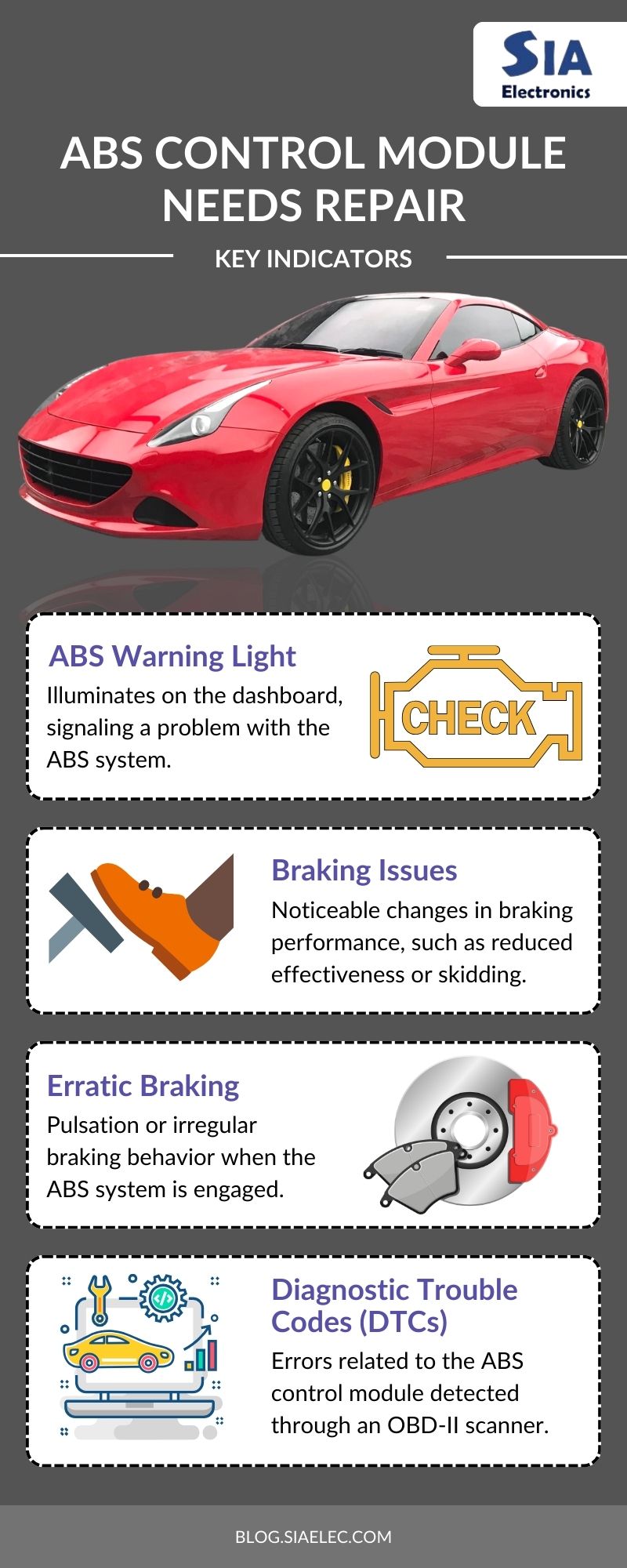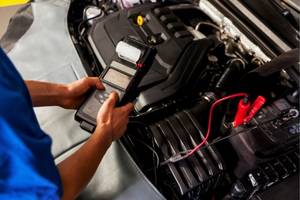Introduction
The ABS (Anti-lock Braking System) control module is a crucial component in modern vehicles, ensuring that your brakes function optimally under various driving conditions. For VW owners, maintaining and repairing this module is essential for safe and reliable vehicle performance. In this blog, we will explore everything you need to know about VW ABS control module repair services, including when and why it’s necessary, and the options available for you.
Table of Contents
What is VW ABS Control Module Repair?
VW ABS control module repair involves diagnosing and fixing issues with the module that controls the anti-lock braking system in your vehicle. This component plays a vital role in preventing wheel lock-up during hard braking, thereby enhancing vehicle stability and control.
Key Points:
- Functionality: The ABS control module manages the braking pressure to prevent wheel lock-up.
- Common Issues: Problems with the module can lead to malfunctioning brakes or warning lights.
- Repair Process: Involves diagnosing the problem, fixing faulty components, and reprogramming the module.
Best VW ABS Control Module Repair Services Provider?
Several companies specialize in VW ABS control module repair, offering services to restore the functionality of your braking system.
S.I.A. Electronics
Expertise: Over 20 years of experience in re-manufacturing automotive electronic control modules and ECUs.
Services: Includes ABS control module repair, mass air flow sensors, anti-lock brake computers (EBCMs), and anti-lock brake hydraulic units.
Reputation: Known for high-quality repairs and comprehensive warranty coverage.
How Do I Know if My VW ABS Control Module Needs Repair?
Identifying issues with your VW ABS control module is crucial for maintaining safety and performance. Here are common signs that indicate a need for repair:
Key Indicators:
- ABS Warning Light: Illuminates on the dashboard, signaling a problem with the ABS system.
- Braking Issues: Noticeable changes in braking performance, such as reduced effectiveness or skidding.
- Erratic Braking: Pulsation or irregular braking behavior when the ABS system is engaged.
- Diagnostic Trouble Codes (DTCs): Errors related to the ABS control module detected through an OBD-II scanner.
What Should I Do if My ABS Warning Light is On in My VW?
If the ABS warning light comes on, it’s essential to take appropriate steps to address the issue:
Recommended Actions:
- Check for Diagnostic Codes: Use an OBD-II scanner to retrieve trouble codes related to the ABS system.
- Inspect the System: Examine the ABS sensors, wiring, and brake fluid levels.
- Consult a Professional: Seek a qualified mechanic or automotive electrician to diagnose and repair the issue.
- Avoid Aggressive Driving: Until the issue is resolved, drive cautiously to ensure safety.
Is It Worth Repairing the ABS Control Module or Should I Replace It?
Deciding whether to repair or replace the ABS control module depends on several factors:
Considerations:
- Cost of Repair vs. Replacement: Repairing the module is often less expensive than replacing it. However, the cost will depend on the extent of the damage and labor involved.
- Extent of Damage: Minor issues can often be repaired, while severe damage may require a replacement.
- Longevity and Warranty: Repairs typically come with a warranty, offering reassurance regarding the module’s longevity.
Repair vs. Replacement:
- Repair: Ideal for minor faults, often restoring the module to full functionality.
- Replacement: Necessary for extensive damage or if the module is beyond repair.
Conclusion
The VW ABS control module plays a crucial role in ensuring the safety and performance of your vehicle’s braking system. Understanding when and how to repair or replace this component can save you from costly repairs and maintain your vehicle’s reliability. With expert services available, such as those provided by S.I.A. Electronics, you can trust that your ABS control module will be in good hands.
FAQs on
VW ABS Control Module Repair Services : A Comprehensive Guide
-
1. What are the common signs that indicate a malfunctioning VW ABS control module?
Ans.
The common signs include an illuminated ABS warning light on the dashboard, noticeable changes in braking performance (such as reduced effectiveness or skidding), erratic braking behavior when the ABS system is engaged, and Diagnostic Trouble Codes (DTCs) related to the ABS control module detected through an OBD-II scanner.
-
2. How can I find a reputable company for VW ABS control module repair?
Ans.
Look for companies with extensive experience in automotive electronics, such as S.I.A. Electronics, which offers over 20 years of expertise in re-manufacturing automotive electronic control modules and ECUs. Consider factors like the company’s reputation, the range of services offered, and their warranty coverage.
-
3. What steps should I take if the ABS warning light appears on my VW?
Ans.
Start by checking for Diagnostic Trouble Codes (DTCs) using an OBD-II scanner. Inspect the ABS system, including sensors, wiring, and brake fluid levels. Consult a professional mechanic or automotive electrician to diagnose and repair the issue. Until the problem is resolved, drive cautiously to ensure safety.
-
4. Is it better to repair or replace a faulty VW ABS control module?
Ans.
The decision depends on factors such as the extent of the damage and the cost of repair versus replacement. Repairs are often less expensive and suitable for minor faults, while replacements may be necessary for extensive damage or if the module is beyond repair. Repairs usually come with a warranty, which can offer peace of mind regarding the module's longevity.
-
5. What does the repair process for a VW ABS control module involve?
Ans.
The repair process includes diagnosing the problem with the ABS control module, fixing faulty components, and reprogramming the module to restore its functionality. This process aims to address issues that could be affecting the performance of the braking system.
-
6. Can driving with a malfunctioning ABS control module affect my vehicle’s safety?
Ans.
Yes, driving with a malfunctioning ABS control module can compromise your vehicle’s braking performance and stability. The ABS system helps prevent wheel lock-up during hard braking, and a faulty module may lead to reduced braking effectiveness or erratic braking behavior, which can affect overall safety.



